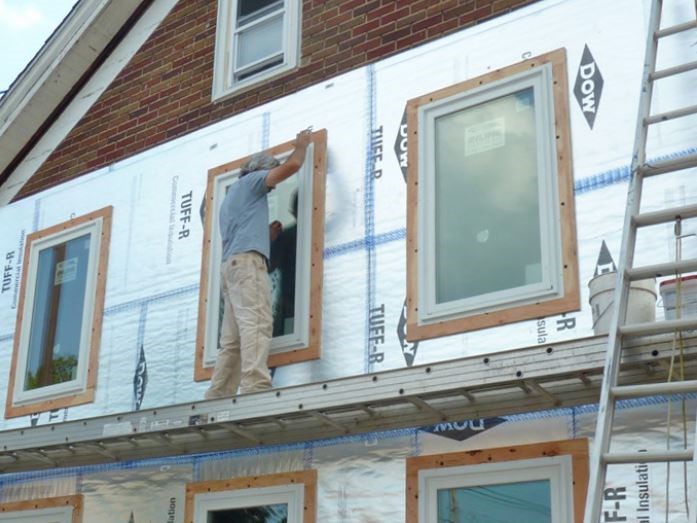THUNDER BAY — The City of Thunder Bay will study the feasibility of a financing program to help homeowners with energy efficiency retrofits.
The move follows city council's approval last June of a net-zero emissions plan that sets an ambitious goal of carbon neutrality by 2050, the same target established by the federal government.
Net-zero emissions are achieved when there are no greenhouse gas emissions or where emissions are completely offset by other actions that remove climate-warming gases from the atmosphere.
In order to meet its target, the city believes 100 per cent of Thunder Bay dwellings built before 1980 will need retrofitting, and space and water-heating must be switched to low-carbon sources.
Over 26,000 of Thunder Bay's 33,000 single detached homes were built prior to 1980.
Due to the high upfront cost of deep energy retrofits, the city believes significant incentives are required for homeowners to undertake the work.
Summer Stevenson, the city's acting Sustainability Coordinator, says the purpose of the pending study is to identify both opportunities and challenges that may arise in the development of a home retrofit program.
"This is just the first step of this journey. The study will conclude with a recommendation to city council and whether to proceed with designing a local program and a recommended financing model," Stevenson said.
The project is funded by the Federation of Canadian Municipalities.
One option will be a program similar to what the City of Toronto has implemented.
Homeowners there can get a low-interest loan of up to $75,000 for a variety of upgrades, payable over a period of up to 20 years.
Stevenson said a few other Ontario municipalities are also piloting programs, but many are still in the feasibility or program design phase.
It's expected Thunder Bay's initial study will be completed by next June, with implementation of a pilot program targeted to happen before 2025.
The study will include engagement with homeowners to gather input and discuss the importance of retrofits.
"It's really important because we know that in Thunder Bay residential buildings make up about 19 per cent of our community emissions every year. That's a pretty significant amount," Stevenson said.
She also emphasized that regardless of what other communities are doing, Thunder Bay will design a program that caters to its specific needs.
"Part of this study will be looking at the capacity of contractors in the region, as well as the availability of energy advisors. Because sometimes what happens is these awesome rebates come through, these programs, and then there's nobody in the city who's able to do an energy audit. We'll be able to address all those pieces and support capacity-building so the program is really successful."
The city is currently advertising for a consultant to assist with the study, but Stevenson will act as project coordinator and provide day-to-day oversight.
